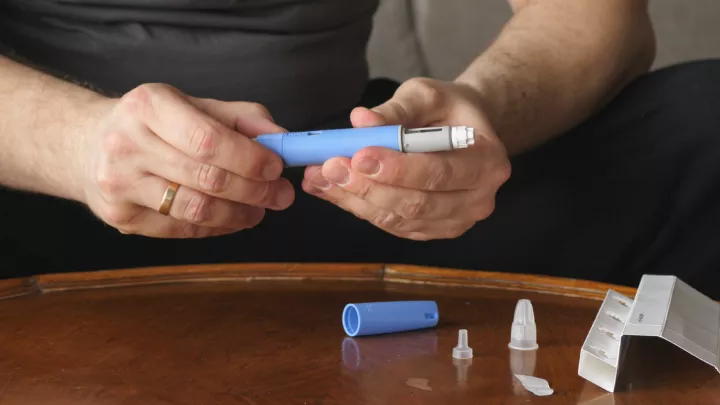New drug approved to treat postpartum depression

For most new mothers, taking on the role of caring for a new baby is a very joyful time, but it can also be very stressful and emotional. While most mothers learn to adapt to their new schedules and responsibilities, up to 15% of women will develop postpartum depression, which can become downright debilitating.
Recently, a new drug called zuranolone became the first drug approved by the Food and Drug Administration developed specifically for treating postpartum depression.
“A potentially important advantage of zuranolone is that in clinical trials, some women improved in three days,” says psychiatrist Sharon Hammer, MD, with the Nebraska Medicine Reproductive Psychiatry Clinic. “This is a significant improvement over traditional antidepressant medications, which often take four to six weeks to become effective. This can especially benefit women with severe or acute postpartum depression.”
The new drug is expected to be available by the end of the year.
Zuranolone is a high-potency synthetic hormone derived from progesterone. It is believed that postpartum depression is caused by a receptor in the brain called GABA-A, a neurotransmitter that blocks the nerve cell’s ability to send and receive chemical messages that help regulate mood and anxiety. Zuranolone targets this receptor. Traditional antidepressants target serotonin, which also regulates mood, but may not be specific to postpartum depression.
The drug is taken once a day for 14 days. Women in the clinical trials showed significant improvement during that time, and most continued to stay well 30 days later, Dr. Hammer says.
Because the drug is so new, there are still several unknowns associated with it. We don’t know the relapse rate or if there will be one, notes Dr. Hammer. In addition, the drug does pass into the mother’s breast milk and potential side effects to the baby are still unknown. Lastly, we don’t know the cost of the drug yet, and insurance companies may require prior authorization before it is covered.
Women with postpartum depression are typically treated with conventional anti-depressant drugs that are usually effective but take longer to work. “The advantage to these, however, is that traditional anti-depressant drugs have been studied for more than 20 years and have a long safety record when taken while breastfeeding,” Dr. Hammer says. “Because there are still some unknowns with this new drug, we anticipate it will be reserved primarily for women with acute or severe cases. Women with mild to moderate cases, or those who want to continue breastfeeding, can still be treated with talk therapy and traditional drugs if needed.”
Postpartum depression usually begins within the first three months after giving birth, but it can occur anytime within the first year of having a baby. It differs from the “baby blues” associated with feelings of sadness, fatigue and anxiety that occur in up to 80% of new mothers.
Postpartum depression is a serious mental illness that can cause:
- High levels of anxiety
- Obsessive compulsiveness
- Extreme fatigue
- Confusion, bad memory
- Inability to sleep
“We’ve found that many women who develop postpartum depression also experienced some depression during pregnancy,” says Dr. Hammer.
Women at the highest risk for postpartum depression include:
- Young mothers
- First-time mothers
- Mothers with little support
- Single moms
- Mothers in lower socioeconomic status
You can help prevent postpartum depression by:
- Getting sufficient sleep
- Getting social support
- Receiving talk therapy
“This is an important new drug as 20% of all deaths in new mothers is caused by suicide,” says Dr. Hammer. “The hope is that quick intervention with the most severe cases will help bring those numbers down.”
Find out if you need treatment. The Reproductive Psychiatry Clinic specializes in treating depression and mood disorders for women during periods of hormonal transition. Call 800.922.0000 to schedule an appointment with one of our specialists.







